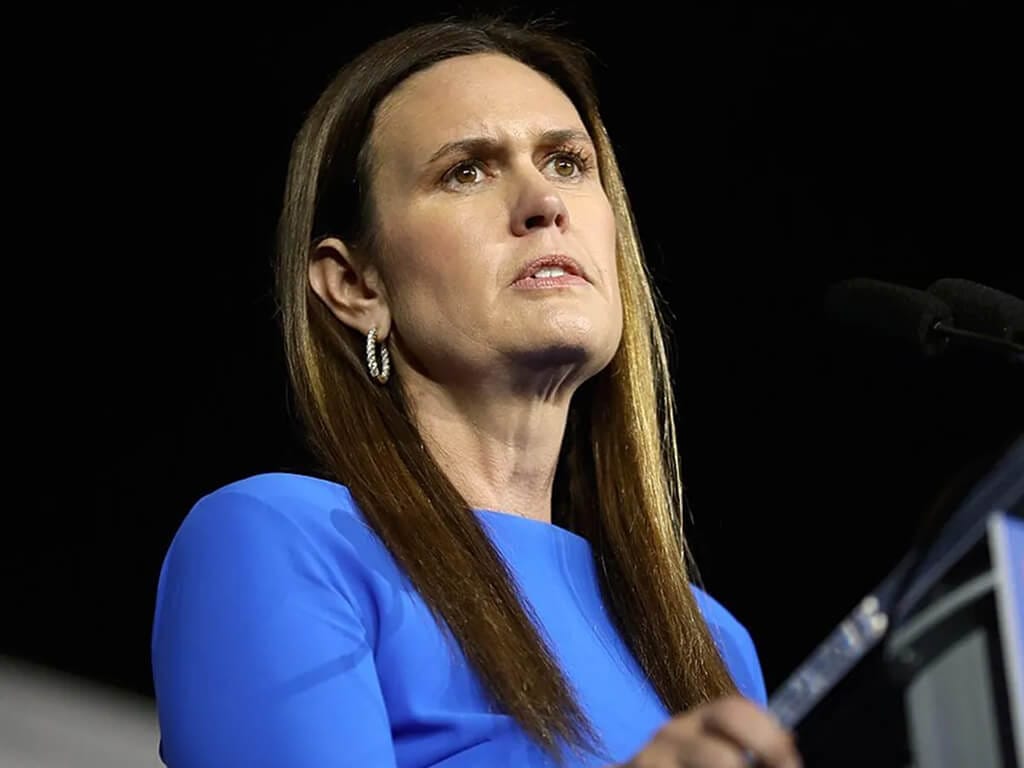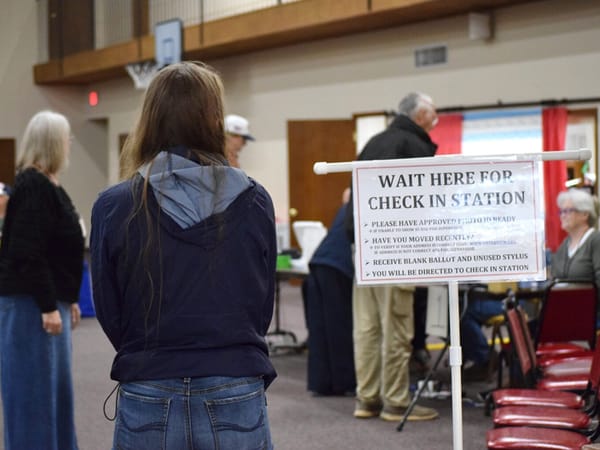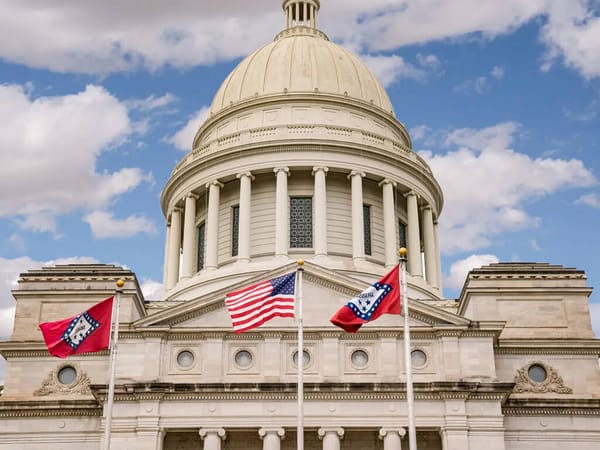Arkansas Supreme Court Delivers New Blow to Sanders Effort to Delay Special Elections
The Arkansas Supreme Court has rejected Governor Sarah Sanders request to pause a lower court ruling that requires an earlier special election for Senate 26.

Courts do not accept the governor’s argument that holding the special elections sooner would be too burdensome. Judges have repeatedly ruled against Governor Sarah Sanders attempts to delay the vote.
The legal disputes Sanders became involved in after setting unusually late special election dates for two vacant legislative seats in Arkansas have not gone in her favor at any stage. The latest setback came on Wednesday, November 13, when the Arkansas Supreme Court rejected a request from Attorney General Tim Griffin’s office to pause two lower court orders that require the elections to be held earlier. The justices also declined Griffin’s request to merge the Senate District 26 case with the House District 70 case, which also calls for earlier election dates.
The ruling now brings a central question into focus. Will the governor, who says she is acting to protect taxpayer dollars, begin preparing for earlier elections, or will she continue to push back against the schedule set by the courts.
What the Supreme Court Ruled
The Arkansas Supreme Court issued identical orders that did not explain the justices’ reasoning but did grant the state’s requests for expedited consideration of its appeals of two Pulaski County Circuit Court rulings from last month. Associate Justice Rhonda Wood noted that she would have approved a faster briefing schedule, while Associate Justice Barbara Webb did not participate.
On November 5, Noah Watson, deputy solicitor general for Attorney General Tim Griffin, filed a request to stay the October 22 ruling by Circuit Court Judge Patricia James. Judge James had sided with the petition calling for an earlier election date, and Watson argued that the ruling does not even account for all the statutory requirements or any real world logistics.
An eleven page response was filed on November 7 by Jennifer Waymack Standerfer on behalf of Colt Shelby, who sued Governor Sarah Sanders to require an earlier election. The filing argued that Sanders could not seek a stay from the Arkansas Supreme Court without first requesting one from the circuit court that issued the original ruling.
Standerfer emphasized that delaying the special election would continue to disenfranchise voters in Senate District 26. January 30, 2026 is 150 days after Senator Stubblefield’s passing, she wrote. If the special election is not immediately moved up to the next practicable date after January 30, 2026, then even if the Circuit Court’s ruling is affirmed, county election officials will not have adequate time to prepare. The requested stay and procedural delay, she argued, would prevent representation of Senate District 26 for 279 days and through the 2026 Fiscal Session, leaving the district with no voice in their Republic and no remedy in the courts.
The Supreme Court did not provide a detailed explanation for its denial, yet the decision aligned with the concerns raised by the plaintiff and marked another significant setback for the governor’s position. After the order was issued, Standerfer said she was grateful for what she called a reasoned and right ruling. She added that she expected more rulings to follow in the same direction and planned to continue ensuring the court had everything it needed to enforce the lower court’s decisions.
The Developing Senate District 26 Case
On October 6, Colt Shelby filed a lawsuit in Pulaski County Circuit Court seeking an earlier special election date for Senate District 26. The seat became vacant after the September 2 passing of Senator Gary Stubblefield, R Branch. The lawsuit, filed by Bentonville based attorney Jennifer Waymack Standerfer, named Governor Sarah Sanders and Secretary of State Cole Jester as defendants. Shelby asked the court to set the special general election for December 9, 2025.
Senate District 26 includes parts of Franklin County, the controversial prison site, which has drawn added public attention to the delay in filling the seat.
Governor Sanders initially scheduled the general election for November. After significant public backlash, she moved the date to June 9, although that date still exceeded the 150 day limit and came after key fiscal sessions and legislative votes. In her announcement, she argued that holding an election within 150 days of the vacancy was impracticable or unduly burdensome.
Shelby countered that state law requires the governor to schedule a special election within 150 days of a vacancy. Standerfer pointed to a clear precedent from 2021, when then Governor Asa Hutchinson followed the same timeline after Senator Lance Eads, R Springdale, resigned. Election officials also testified that the same schedule could be used for the Senate District 26 special election. The circuit court agreed, noting that an earlier date within the required window was possible.
A second complication arose when another legislative seat became vacant during the Senate District 26 delay, a development that may have been intended to support the governor’s argument about scheduling challenges. That case is now also before the court. Pulaski County Circuit Judge Shawn Johnson ordered the House District 70 election to be held on March 3, 2026. In the Senate District 26 case, Circuit Judge Patricia James ruled that the election should be scheduled as soon as practicable after the 150 day deadline, though she did not set a specific date.
Both cases will continue progressing through the courts, since they now directly touch on the authority of the governor and the state, a point the attorney general has also emphasized.
Will the Governor Conduct an Earlier Election
The Supreme Court denied Sander's request, which means the circuit court decisions remain in effect. Legal experts say that if Sanders refuses to set earlier election dates, she could be held in contempt of court, a concern raised earlier by Democrats. By the time her appeals move forward, the deadlines for the required special elections may have already passed, forcing her to comply.
When asked by the media whether the Supreme Court’s decision not to stay the lower court rulings meant that Governor Sanders would move the elections earlier, her spokesperson Sam Dubke said, “Governor Sanders is confident that on appeal, the law clearly giving the Governor the authority to set special elections will be upheld. This will ultimately save taxpayer dollars and ensure the election is free, fair, and secure.”
Dubke’s statement suggested that the governor may continue to rely on the appeal before taking further action on the election schedule.
She is now expected to move toward publicly explaining why she delayed the elections. The judges acknowledged that accelerated elections can create real logistical challenges. Sanders attorneys argued that following the faster schedule would violate other state laws, because setting up an election in fewer than 192 days, including candidate filings, public notices, runoffs, and absentee ballots, would be impossible. She may use that argument to defend her decision, although her political opponents will likely use the delays against her.
Senate District 26 and House District 70 elections could ultimately be combined under a new schedule to reduce potential political backlash.
Election Campaign Begins Amid Uncertain Dates
Although the dates for the primary and special elections remain uncertain, Wednesday, November 13, marked the final day to file for the 2026 election cycle. The candidate lineup for Senate District 26 has been submitted. Former State Representative Mark Berry of Ozark filed as a Republican, joined by Greenwood residents Wade Dunn and Stacie Smith, and Paris businessmen Brad Simon and Ted Tritt. Adam Watson of Franklin County filed as an independent. No Democrats have entered the race.
In House District 70, Bo Renshaw will run as the Republican candidate, while the Democratic primary will feature Alex Hilladay and Cordellia Smith Johnson. All candidates are waiting for the official election dates, which will be determined by Governor Sanders and her attorneys.





